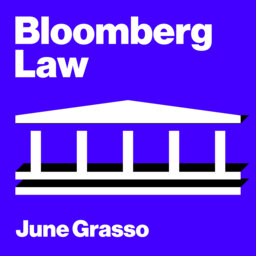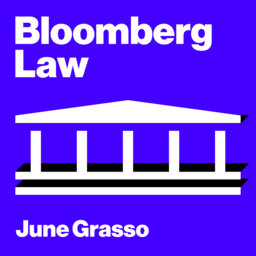Trump's Assault on the Rule of Law
Matthew Diller, a professor at Fordham Law School, discusses President Donald Trump’s assault on judges, lawyers and the rule of law. Erik Larson, Bloomberg legal reporter, discusses Judge James Boasberg extending his order to prevent the Trump administration from using a wartime law to deport alleged Venezuelan gang members. June Grasso hosts.
In 1 playlist(s)
Bloomberg Law
Expert analysis on legal issues and cases in the news. Host June Grasso speaks with prominent atto…Social links
Follow podcast
Recent clips

Introducing: Bloomberg This Weekend
01:08

Weekend Law: Big Oil Seeks Climate Lawsuit Reprieve; States Sue RFK Jr
38:54

Tariffs Struck Down, Erasing History & Climate Rule Revoked
36:40
 Bloomberg Law
Bloomberg Law